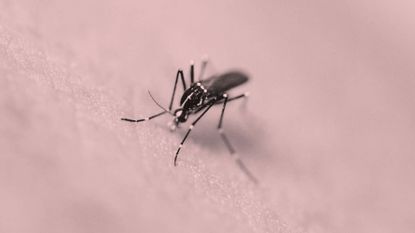

As someone who will be traveling to an Alert Level 2 zone next month, the fear of Zika is very real. I want to take every precaution—and that means seriously reassessing my beauty routine. Slathering on bug spray and saying goodbye to my precious fragrances?! Turns out it's not that simple. Here's what you need to know if you're somewhere that the virus poses a serious threat:
1. Bug spray is a must, but they're not all created equal.
"Using an insect repellent is one of the best ways you can protect yourself from Zika and other diseases transmitted by mosquitoes," explains Harry Savage, chief of ecology and entomology activity at the CDC's Division of Vector-Borne Diseases, via Consumer Reports who tested a variety of products to see what works best. Two of the most effective repellants were Sawyer Picaridin as it contains 20 percent picaridin, as well as Off! Deepwoods VIII, which contains 25 percent DEET. But bad news for organic enthusiasts, CR advises against natural plant oils as many failed the test immediately or only lasted for an hour.
Sawyer Picaridin Insect Repellent, $11.43; amazon.com.
OFF! Deep Woods Insect Repellant VIII Dry 4 Ounces, $6.17; walmart.com.
2. You need to reapply every couple of hours.
If you're in an area at risk for Zika, you should be diligent about reapplying. Even the best-of-the-best repellents (the ones with the higher percentages of the active ingredients) only kept mosquitos from biting for 8 hours, so don't become blasé after the first application. According to the CDC, regardless of what product you use or how long it's been, if mosquitoes are coming too close for comfort, you should reapply ASAP.
3. Never apply repellent under clothes or sunscreen.
The key is applying it to *exposed* areas. Applying more does not make it more protective. And when you do apply it in tandem with sunscreen, make sure that the bug spray is applied after the SPF. And whatever you do, don't use a hybrid of the two. This is not a solution because 1) Chances are the formula won't be as robust in either capacity and 2) Sun protection needs to be applied more often, says the CDC.
4. Don't retire your go-to fragrance just yet.
It might be protecting you! According to the Journal of Insect Science, the Victoria's Secret Bombshell perfume was actually found to repel insects for at least an hour. "Our results challenge the notion that floral, perfume-scented sprays, in general, attract mosquitoes," the study states. "Floral fragrances may provide a masking odor resulting in low mosquito attraction rates, but over a shorter duration of time."
Stay In The Know
Marie Claire email subscribers get intel on fashion and beauty trends, hot-off-the-press celebrity news, and more. Sign up here.
This said, certain scents given off by fragrances or deodorants can attract mosquitos, so make sure you're diligent about applying/reapplying repellent and paying close attention. If a product seems to be a mosquito magnet, stop wearing it. It's not worth the risk.
5. You should be showering regularly.
Forever and always, but especially if you're in a Zika zone, as the more body odor you're emitting, the easier it as for mosquitos to find you. Similarly, perspiration is a magnet for them because they can sense moisture and heat. So do your best to stay cool.
Follow Marie Claire on Facebook for the latest celeb news, beauty tips, fascinating reads, livestream video, and more.

Lauren is the former beauty editor at Marie Claire. She love to while away the hours at coffee shops, hunt for vintage clothes, and bask in the rough-and-tumble beauty of NYC. She firmly believes that solitude can be a luxury if you’ve got the right soundtrack—that being the Rolling Stones, of course.
-
 'Baby Reindeer' Is Netflix's Latest Viral Hit—Will It Get a Season 2?
'Baby Reindeer' Is Netflix's Latest Viral Hit—Will It Get a Season 2?The miniseries from Richard Gadd has a very definite ending.
By Quinci LeGardye Published
-
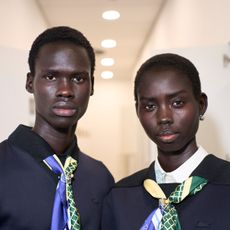 The Best Unisex Perfumes Were Made to Be Shared
The Best Unisex Perfumes Were Made to Be SharedYours, mine, and ours.
By Sophia Vilensky Published
-
 The Spice Girls’ Mini-Reunion at Victoria Beckham’s 50th Birthday Party Is a Precursor for a Forthcoming Tour, Sources Say
The Spice Girls’ Mini-Reunion at Victoria Beckham’s 50th Birthday Party Is a Precursor for a Forthcoming Tour, Sources Say“I’ll tell you what I want, what I really, really want”...is this to be true.
By Rachel Burchfield Published
-
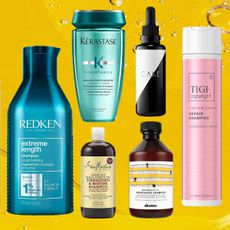 The 32 Best Hair Growth Shampoos of 2024, According to Experts
The 32 Best Hair Growth Shampoos of 2024, According to ExpertsRapunzel hair, coming right up.
By Gabrielle Ulubay Published
-
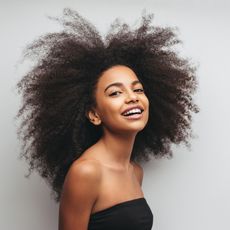 The 20 Best Hair Masks for Damaged Hair, According to Experts and Editors
The 20 Best Hair Masks for Damaged Hair, According to Experts and EditorsHealthy strands, here we come!
By Gabrielle Ulubay Last updated
-
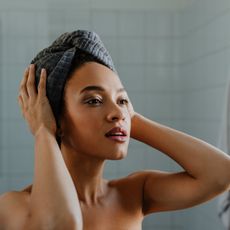 How Often You Should Wash Your Hair, According To Experts
How Often You Should Wash Your Hair, According To ExpertsKeep it fresh, my friends.
By Gabrielle Ulubay Published
-
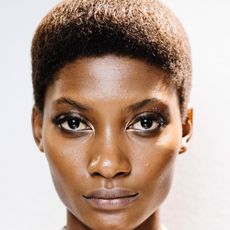 The 11 Best Magnetic Lashes of 2023
The 11 Best Magnetic Lashes of 2023Go ahead and kiss your messy lash glue goodbye.
By Hana Hong Published
-
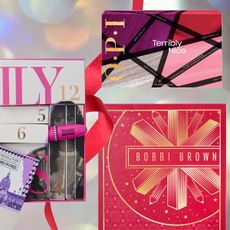 Beauty Advent Calendars Make the Perfect Holiday Gift
Beauty Advent Calendars Make the Perfect Holiday GiftThe gift that keeps on giving.
By Julia Marzovilla Last updated
-
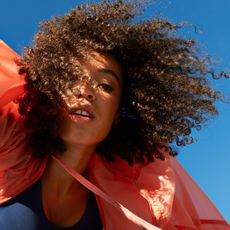 The 18 Best Natural Hair Products in 2023
The 18 Best Natural Hair Products in 2023Remember: Your curls are your crown.
By Gabrielle Ulubay Published
-
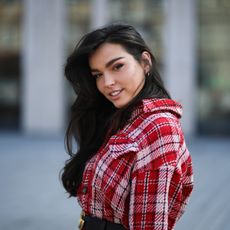 The 9 Best Hot Rollers for the Curls of Your Dreams
The 9 Best Hot Rollers for the Curls of Your DreamsThis is how we roll.
By Samantha Holender Published
-
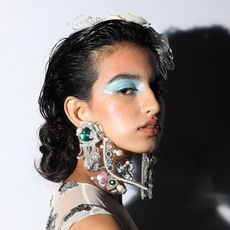 The 12 Best Cream Eyeshadows, According to Makeup Artists
The 12 Best Cream Eyeshadows, According to Makeup ArtistsThe best part? They’re so easy to apply.
By Samantha Holender Published